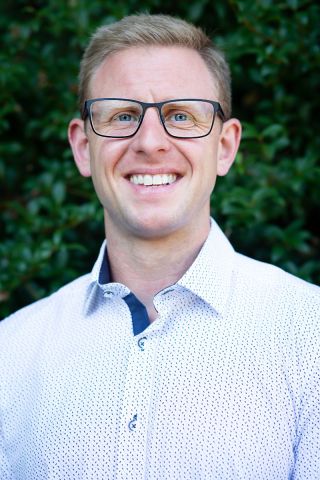Relationships
The Superhumans Behind Every Paralympian
The crucial role of professional relationships in achieving global success.
Posted August 26, 2024 Reviewed by Hara Estroff Marano
Key points
- Paralympic success rests on a network of friends, medical experts, and supporters.
- The absence of disability accommodations made coping with adversity necessary.
- Perspective is key, there's always someone whose challenges make yours seem manageable.
- The success of the Paralympics and its media profile have changed the way disability. is seen.
Success at the Paralympics doesn’t come easily. It demands not just physical prowess and mental fortitude but also a robust network of professional and personal relationships. Aaron Phipps, MBE, an elite wheelchair rugby player and gold medal-winning Paralympian who is competing again in this year’s games in Paris, embodies the multifaceted journey of strength, resilience, and support systems.
Aaron’s Early Journey and Illness

Aaron’s life took a dramatic turn at the age of 15 when he was diagnosed with meningococcal septicaemia, or meningitis type C. The severity of the illness escalated within hours, leading to life support and an induced coma. Despite the gravity of the situation, Aaron expressed profound gratitude for the medical professionals who saved his life and later performed necessary amputations.
"It was a surreal experience, but the mental strength of the surgeons and medical team played a vital role in putting me back together. I remember having people in my room talking to me. It'd be, I don't know, an ear, nose, and throat doctor who'd be saying, ‘I've got a four-hour wait in my clinic because I'm here with you at the moment’, and you think, ‘Okay. I'm never going to moan about sitting in a waiting room ever again’.
“And they were the ones that put me back together. We are so incredibly lucky to have the support of those people that look after us."
After almost a year in the hospital, Aaron skipped returning to school and went straight to college. His friends remained supportive throughout, and, with professional help, including a clinical psychologist, Aaron was able to rewire his brain and shift into survival mode, focusing on reclaiming his life.
Learning to Cope
As he rebuilt his life, one of the most important things for Aaron was to rediscover the ability to live as independently and normally as possible. When he went to his first party after starting college, his friends decided to stay the night. He called home to tell his parents that he planned to join his friends; while his mother suggested he come home, his father supported his decision to stay.
“Unbeknownst to me, they had a massive row. My mum was saying, ‘He can't stay out at this party, he's in a wheelchair. What's he going to do? What if he needs to go to the toilet?’ My dad said, ‘You need to let him live his life’.
“That was massive because, from that point on, I just went and did all the normal things that you would be doing around that age: going out with friends, drinking too much, falling out of my wheelchair. I think it normalised things for me. They could have wrapped me in cotton wool, but they didn’t.
“I just got on with it, which made me resilient, because the world isn’t a perfect place. The world doesn’t have ramps everywhere. My mates just picked me up and carried me places.
“I look back at some of the stuff we got up to; it was crazy. It was good because it was real life. It made me learn how to cope.”
Becoming a Paralympian
Aaron didn’t initially want to get involved with Paralympics. He fell into disability sports by raising money for charity and entering wheelchair races, culminating in racing in two London Marathons.
Meeting other disabled athletes changed his perspective. “I was a bilateral below-knee amputee. I'm missing both my legs below the knees, and I'm missing most of the fingers on my hands. So, I struggle to do things. On paper, I am severely disabled.
“I then got introduced to wheelchair rugby and met people with much more severe disabilities, like spinal injuries, who told me there was nothing wrong with me; it was like a scratch wound. It's a real eye-opener.
“And they were right. I've got my tummy muscles. I can jump out of my chair; I can walk a bit. I thought, if they are cracking on with it, with the little function they have, then I've got nothing to moan about. I expect that kind of changed my attitude towards my disability as well.
“Just being with lots of other driven people is very cool. Whether that be your coaches, teammates, or everyone working towards a common, big David Hyner-style goal.”
The Paralympic Impact
The Paralympics have come a long way since the low profile they enjoyed when Aaron first heard about them. This year’s games will have a substantial global profile with massive viewing worldwide and packed arenas in Paris.
Aaron competed for the first time in the 2012 Paralympics in London, and he credits those games with having a huge impact on how disability is viewed, certainly in the U.K. On top of the huge enthusiasm for the games themselves, how they were presented in the media was pivotal.
“Channel 4 won the rights and just went crazy. I remember watching the very first Super Humans advert and hip-hop music playing over car crashes and explosions. Paralympic sport had never been seen like this before; our jaws hit the floor.
“Programmes like The Last Leg (a late-night comedy/light entertainment show the hosts of which include two disabled presenters who joke about their disabilities) weren’t normal. But it is now."
The success and popularity of the Paralympics shifted perceptions of disability across society. Aaron shared a simple example: “Before London, I used to wear jeans. I used to hide my legs. That made me uncomfortable. Shorts are much more comfortable. At some point after London, I just started wearing shorts and didn't care anymore.
“There was a shift in people's perceptions, and I can't say exactly when that was, but something changed in society where it didn't matter if you're an amputee and you had your prosthetic legs out.”
Inspiring the Next Generation
Today, Aaron leads a full and inspiring life. He doesn’t just compete at the top level in wheelchair rugby, he is also a motivational speaker and mentor, encouraging those new to life-changing injuries. As if that’s not enough, he took up the incredible challenge of becoming the first person in the world to reach the summit of Mount Kilimanjaro in a wheelchair without any assistance, a truly superhuman feat of willpower over pain.
He has been voted one of the 100 most influential people in the U.K . with a disability three times; his talks to youth players in disability sports help break down barriers and provide essential mentoring.
Having been inspired by the Channel 4 Super Humans advert in 2012, Aaron is now one of the stars of the 2024 version, something that means so much to him. “The legacy of my journey and the Paralympics is to inspire others to push beyond their limits and understand the value of support networks. To be asked to be in the newest Super Humans advert and be at the start of it, I was genuinely proud of that”




